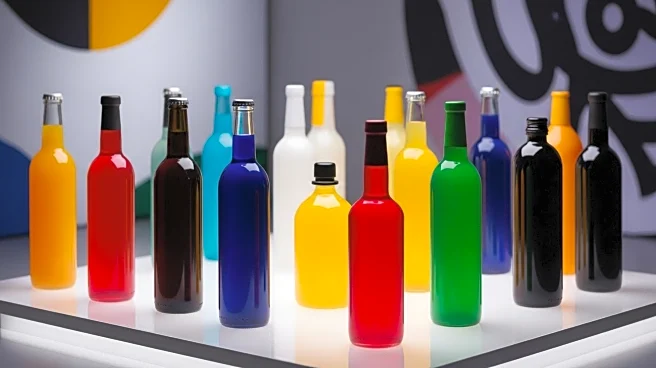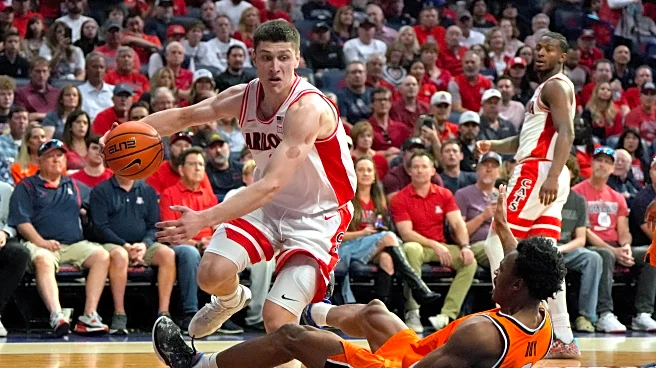What's Happening?
The functional beverage market is experiencing significant growth, with projections indicating it will reach $250 billion by 2030. Currently valued at $149 billion, the market is expanding at a compound annual growth rate (CAGR) of 8.9%. Key trends driving this growth include increased consumer awareness of health benefits associated with functional drinks, which are enriched with ingredients like amino acids, vitamins, and minerals. The ready-to-drink category, including functional juices, sparkling waters, and teas, is particularly popular. Personalization is a major trend, with consumers seeking beverages tailored to their health goals and lifestyles. Innovations in delivery systems, such as microencapsulation and AI-driven formulation tools, are enhancing the efficacy of functional ingredients.
Why It's Important?
The growth of the functional beverage market reflects a broader consumer shift towards health-conscious consumption. This trend has significant implications for the beverage industry, prompting manufacturers to innovate and cater to personalized health needs. Companies that successfully adapt to these trends stand to gain a competitive edge, while those that fail to innovate may lose market share. The emphasis on personalization and advanced delivery systems could lead to new product categories and business models, impacting supply chains and retail strategies. Additionally, the focus on health benefits aligns with public health initiatives, potentially influencing regulatory policies and consumer education efforts.
What's Next?
As the market continues to grow, companies are likely to invest in research and development to create more personalized and effective functional beverages. Collaborations with tech companies for AI-driven solutions and partnerships with health organizations for consumer education could become more common. Regulatory bodies may also play a role in setting standards for health claims and ingredient safety. The integration of wearable technology and health apps with beverage consumption could further personalize consumer experiences, driving demand for data-driven product development.










